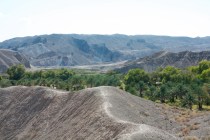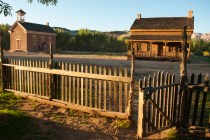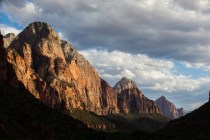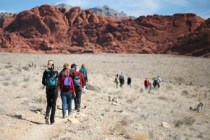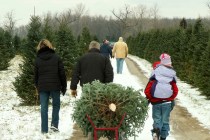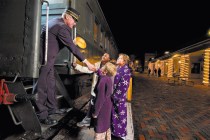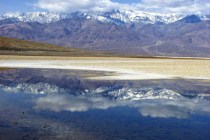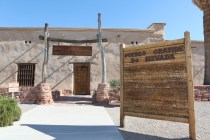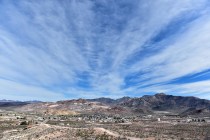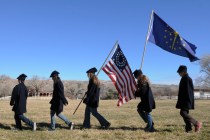Isolated Walker Lake an underappreciated gem
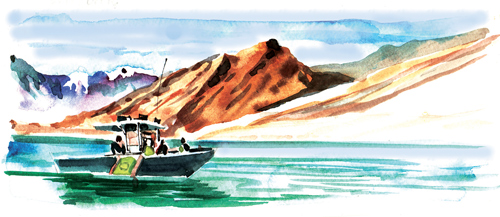
Hauntingly beautiful Walker Lake near Hawthorne provides recreational opportunities for picnicking, camping, boating and fishing. To passersby on busy U.S. Highway 95 skirting the lake’s western shore, these facilities seem underutilized even during holidays and weekends in spring, early summer and fall.
Walker Lake and Pyramid Lake to the north are natural lakes, remnants of ancient Lake Lahontan, which covered a large part of western Nevada during the Ice Age. As you travel this part of the Silver State, note the benchmarks of old shorelines left by receding lakes in other valleys that also once held remnants of Lake Lahontan.
Named for mountain man Joseph Walker, who found it in 1834, Walker Lake fills a trough between mountains, measuring 12 miles long and 5 miles wide. The lake is fed only by the Walker River, which is overallocated for irrigation upstream, and its shoreline has receded about 140 feet since the late 1800s.
The lake is becoming more saline, a concern for its two species of fish, the native tui chub and Lahontan cutthroat trout, as well as migratory fish-eating birds. Mining activities upstream continue to pollute area waters, and mercury contamination remains of particular concern.
Unlike lakes in well-watered, forested areas, desert lakes seldom support much vegetation. Walker Lake’s sparse flora occurs primarily in the riparian delta marking the course of the river through the Walker River Indian Reservation on the lake’s northern end and marshy vegetation at the shallow southern end closest to Hawthorne. Its nakedness gives Walker Lake a unique, bare-bones kind of beauty that challenges photographers to capture just the right moment.
Because of its isolation in a largely waterless landscape, Walker Lake attracts at least 100 species of birds. Even from the highway, motorists can spot congregations of pelicans that seasonally populate the shores. Open water lures flotillas of ducks, geese, loons, grebes, cormorants, coots, gulls and terns, which, in turn, attracts birdwatchers.
The National Audobon Society lists Walker Lake as one of its important bird areas threatened enough for focus of conservation efforts. The sharp decline in the numbers of fish-eating loons assembling seasonally on the lake indicates the fishery is in trouble. The Audobon Society is among several concerned conservation groups targeting Walker Lake and encouraging state and federal officials to take action to save the lake.
Walker Lake boasts four developed recreation sites at beaches accessible from U.S. 95 north of Hawthorne, including three Bureau of Land Management sites and one day-use area maintained by Nevada State Parks. BLM’s main site at Sportsman’s Beach contains 31 campsites with shades over tables, grills or fire pits as well as two primitive sites for RVs and tents. Bring your own water. Overnight use costs $6 for developed sites and $4 to stay in the primitive area. BLM facilities at Tamarack Beach and Twenty-mile Beach are limited to toilets. Roads are not maintained. At Walker Lake State Recreation Area, day-use visitors find tables, grills, toilets and boat-launching ramps on a sandy beach. No fees apply at this picnic site.
Despite its troubles, Walker Lake remains a place to have fun and experience Nevada as you never knew it before. Stop for a picnic and admire this gem of a lake with its unruffled blue surface mirroring the purple mountain ranges surrounding it. Overnighters at Walker Lake never forget the brilliant night sky revealed far from city lights.
Margo Bartlett Pesek’s column appears Sundays.



